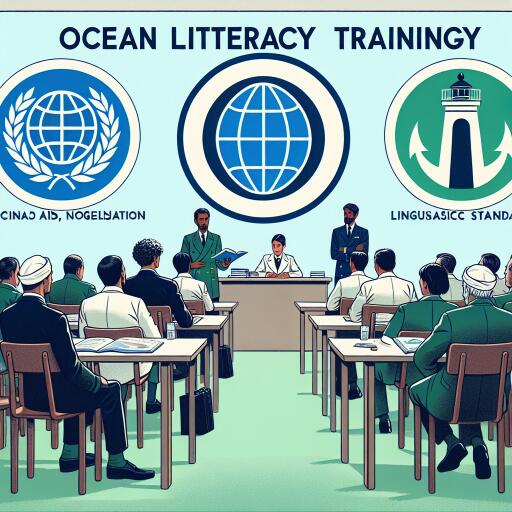
Enhancing Ocean Literacy: A Collaborative Approach for Marine Navigational Safety
In a groundbreaking initiative to bolster ocean literacy, navigational safety, and marine environmental protection, the International Foundation for Aids to Navigation (IFAN) has teamed up with two esteemed entities – UNESCO’s Intergovernmental Oceanographic Commission and the International Association of Marine Aids to Navigation and Lighthouse Authorities (IALA) – to roll out specialized training for managers of Aids to Navigation (AtoN) across the globe.
This collaboration underscores the imperative of a multi-faceted strategy in overcoming the hurdles identified in the UN Ocean Decade, especially focusing on enhancing access to ocean-specific skills, knowledge, technology, and transforming the global populace’s interaction with the ocean’s vast resources and mysteries.
IFAN, renowned for its commitment to marine safety and environmental protection and standing as the world’s only independent lighthouse authority, alongside UNESCO and IALA, has spearheaded the development of bespoke ocean literacy training modules. These modules, meticulously designed for AtoN managers, aspire to be an integral part of IALA’s educational offerings.
The curriculum, rich in content on navigational risk management, marine conservation, and the integration of ocean literacy into AtoN management practices, aims to empower AtoN managers with a comprehensive understanding of ocean science principles. This enlightenment is envisioned to augment their proficiency in addressing the intricacies tied to maritime safety and environmental guardianship.
A cornerstone of this initiative is the partnership model it embodies, promoting interaction among stakeholders from various sectors to brainstorm and tackle the multifaceted challenges our oceans face today. It serves as a beacon for collaborative efforts in enhancing both technical and scientific knowledge among those at the helm of maritime navigation and environmental preservation.
Aids to Navigation, encompassing lighthouses, buoys, and beacons, play a critical role in maritime safety by guiding ships through treacherous waters and alerting them to potential dangers. Despite their pivotal role in environmental safeguarding, conventional training for AtoN operations has historically skewed towards technical proficiency, with scant regard for ocean science or the pursuit of environmental conservation. This initiative endeavors to fill that gap, fostering an environment where maritime safety and ecological conservation are addressed as complementary facets of ocean management.
By weaving ocean literacy into the fabric of navigational safety training, the program aspires to recalibrate the narrative around marine conservation and safety, promoting a holistic understanding among AtoN operators of the symbiotic relationship between navigational safety and marine environmental stewardship.
Bridging the Gap for a Sustainable Ocean Future
- Creating Consensus: The partnership is positioned to facilitate a unified approach to prioritizing actions for the Ocean Decade, in line with the directives set forth by the UN General Assembly.
- Enhancing Ocean Knowledge: Elevating the level of ocean literacy and embedding its principles into the standard practices among AtoN professionals.
- Expanding Networks: Offering a platform for participants to cultivate new connections and foster joint initiatives aimed at overcoming the Ocean Decade’s challenges.
- Promoting Inclusivity: Emphasizing equitable involvement, the initiative seeks to convene entities from diverse spheres, ensuring a holistic approach to ocean conservation initiatives.
Francesca Santoro, leading the Ocean Literacy initiatives at UNESCO, lauds the collaboration with IFAN and IALA as an exemplary paradigm of partnership, uniting a multitude of perspectives and expertise to chart a path towards a resilient and sustainably managed ocean ecosystem for future generations.
This innovative initiative not only marks a significant step forward in the realm of marine navigation and conservation but also symbolizes the synergistic power of collaboration across different sectors in fostering a more informed, engaged, and sustainable interaction with our global oceanic heritage.





Leave a Reply